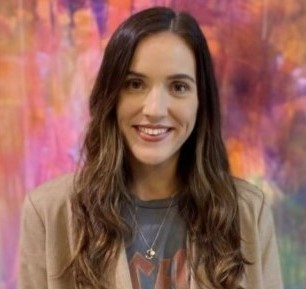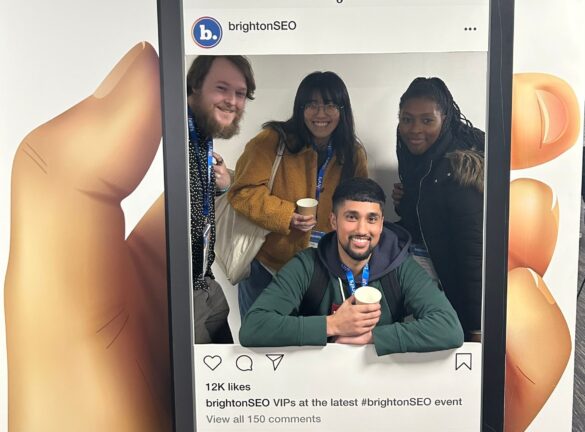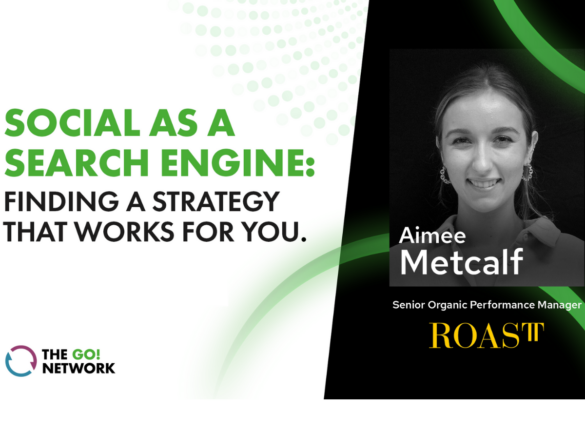
How Has Consumer Behaviour Impacted Digital Marketing For Travel?
On Thursday 28th October, Jess Hodgson Group Client Officer at TIPi Group sat down with Garry Nelson, Group Head of Marketing at AllClear Travel Insurance, Chris Roe, Director at Sound Travel Group and Jamie Ross-Skinner, Insights Manager at TIPi Group.
The panel explored; how and why consumer attitudes and behaviours towards travel have shifted dramatically, new strategies implemented to meet this consumer demand and the long-term changes to marketing.
Download Our Whitepaper on ‘How Travel & Tourism Brands Can Win As The World Starts Moving Again’ HERE.
A video of the session is available to watch here, and the key points are summarised below:
Jess Hodgson: How did your business strategy change when travel wasn’t possible?
Chris: Our business, Sound Travel Group, specialised in creating ticket packages for concerts and live events, mainly with Ticketmaster. We launched our first one (pre-COVID) which was Queen and Adam Lambert in September, which was phenomenal and sold over 4,000 packages overnight. We had proven the model of the business and subsequently needed to increase staff, with new employees joining in February. However, six weeks later we were told about the lockdown from Boris so everything was put to a halt.
During the lockdown period, it was about conservation and protecting the business. We used this turbulent period to completely review the technology we’re using so we were less reliant on people and the manual aspects.
Garry: Similar to Chris, we were at our fastest growth rate and then overnight, the opportunity to travel was gone along with the need for travel insurance l. Our business didn’t come to a stop as people still weren’t sure how long the pandemic would last and as many people had annual policies, they were hoping some element of that would still be valid. From our perspective, it would be about how we could best honour refunds, especially for many of our customers who were earmarked as being vulnerable. There was quite a lot of fear around this so our strategy was making sure we were looking after our customers, reviewing the product and speaking with underwriters on what could be done to improve the product such as COVID cover.
One of our key strategies, which is rewarding us now, we made a conscious decision to carry on communicating. For us, it was about putting good content onto the website, keeping customers informed and carrying on pushing out engaging content to ensure our brand remains at the forefront of their mindset.
JH: What new Consumer desires and behaviours have you identified over the last year?
Garry: The value of staying in touch with our customers also meant we were getting feedback from them. Our customers travelled frequently however, later in life these opportunities get less frequent so naturally having a restriction of no travel for 18 months really impacted them. Also, as we know, travel isn’t always for holiday purposes, it could be for a special event or to see family.
We found that customers were still keen to travel but for the older audience particularly, they were keen to travel where they knew they were going to be safe. Aspects such as mask-wearing, negative COVID-19 tests and vaccination status as well as the health facilities of where they were going were being looked into in more detail than ever before. I think going forward a big focus is going to be on, diligence t in terms of where is deemed as safe to travel.
Jamie: Safety is probably the biggest thing we’ve seen become more important since COVID. Also, flexibility in terms of cancellation policies has become hugely important to consumers, across all demographics. Beyond that, a more subtle trend is the desire for familiarity,n, with the number of people booking trips to countries they have not been before considerably decreasing. People want to remove factors of uncertainty from what has been considered an exceptionally uncertain process due to the extent of the travel restrictions. Other trends include; a boom in honeymoon interest, from delayed weddings throughout the past year or so and for those who bought pets during the lockdown, holidays where they can take their pets. Over three million pets were bought during the lockdown and it is things such as that which have a knock-on effect with travel.
Understanding long-term trends is going to be key, especially with COP upcoming. One thing to think about is the eco-consciousness around travel, to what extent can travel brands offer more green solutions.
Chris: We’re B2B to facilitate B2C, so we’re the support arm for Ticketmaster customers who book packages. During the lockdown, as we saw big events uplifted and moving from 2020 to 2021, Ticketmaster was very quick to introduce a very flexible refund and amendment policy.
Our problem was that (for the packages) hotels were closed with no staff there. Due to Brexit and hotels being closed (due to COVID-19) we struggled to make commercial contact with the hotels to move the dates. Hotels aren’t coming back at the same staffing levels as you saw previously because either the staff aren’t available or the hotel hasn’t got the occupancy to justify employing staff.
JH: Do you think these changes are permanent? How long do you think they will last?
Jamie: The key factor is, will there be more waves that will affect us in the oncoming years? I think safety will stick around as the main concern, especially for the older and more vulnerable groups. Pushed with government regulation, tax and consumer pressure from the younger generation, the trend towards ecotourism will persist.
However, there is still a gap in terms of the ‘say, do’ divide, where 70% of consumers say they want eco-friendly holidays but when it comes to booking them, that percentage goes down to around 30% of people who actually choose a more eco-conscious holiday. It is likely this gap will narrow over time, but nevertheless, this movement to eco-conscious travel is slow.
Chris: In terms of permanent changes, hotels are very conscious that if COVID-19 hits their hotel it will have to close. Every hotel has a ‘Stay Safe, Stay Clean’ mantra over cleanliness so I think that will stay as hotels can’t afford to go down with COVID-19.
One of the other things I think we will see stick is the flexibility on booking terms and conditions and payment terms. Pre-COVID this was very tight but post-COVID they are having to compete on flexibility incorporated into their terms and conditions rather than on price.
Garry: I think we will be living with COVID-19 for a long time and the industry has reacted really well in terms of covering for COVID-19. A good thing is that people will understand more the need for travel insurance and with Brexit, the Government has advised that our EHIC (UK) cards are not to be relied on. Some of the research tells us that people will pay more to cover all the things they want to do so they can feel safe and as such, are willing to pay more to do so. We are also seeing people expressing a desire to achieve things like dream holidays or luxury cruises, things they weren’t able to do during COVID-19 and as people are seeing things can change very quickly.
JH: How are you applying your learnings from the past 18 months to ongoing strategy?
Chris: During the lockdown, we developed our tech to allow customers to self-serve more because that is what they were telling us they wanted. We still have phone and email but we built a customer portal where they can access all their package details and have confidence within the booking. This has seen a reduction in the number of calls we’re getting meaning we don’t have to be staffing up as we scale and the customers are getting what they want. As we go into different demographic events, it will be interesting to see whether this changes.
Garry: It’s about portraying the right message to the right audience and getting relevant content organised in the most reader user-friendly way. It is also worth remembering what people have been through, for instance, if someone has been on their own they may want to call and speak to someone and it’s about providing a valuable service. The most important thing we’ve learned is that you need to provide relevancy on your communication channels, whether that’s over the telephone or through FAQ’s.
Jamie: It’s essential to understand the right touchpoints that the audience wants to engage with. We see in younger audiences they are much less likely to pick up the phone and instead are much more likely to engage on mobile or smart speakers.
Things to think about; is your brand voice optimised, is it pulling through the right data?
The brands who have been doing well over the last year or so, are the ones who’ve constantly been refreshing and ensuring that all of their pages are up to date, as well as optimising them for search and building interactive and engaging content. People are now doing extensive research, so if you’re creating the right content along the research journey, you can build brand affinity as well as provide the right information.
The planning period has become longer and more stressful for travellers, so helping them along that journey is now a huge part of the travel experience.
JH: What are your priorities for 2022? Which marketing channels do you think will be most important?
Garry: The one thing this has taught us, is that the best plans can get completely overridden really quickly. We now have a good awareness of what channels work most effectively for us, where we have an immediate measurement and therefore, can control your costs quickly.
It’s also being wary that things have changed and can change. Looking at; can we keep people educated? Can we keep people informed?
Chris: As a B2B2C, we don’t do direct marketing. However, in terms of marketing for a travel company, I wouldn’t be looking at old-school print or TV marketing as currently with the government policies, you can put an ad out and it could be out of date. A travel company needs to be talking to the customer, wherever the customer is whether that be mobile or voice.
It’s all about reassurance with customers because who knows what will happen next week or next month. We need to be close with our customers, understand their needs and manage flexibility when things change.
Jamie: Digital is critical due to the ability for flexible messaging, as well as testing new channels such as voice. There are a lot of big audiences who are moving across social channels so use the time to test new channels..
There is a role for more upper-funnel, traditional channels such as TV but it’s important to get the messaging right, it’s all about building trust with consumers. I think now more than ever consumers will want to book with brands they’ve heard of so building awareness and trust will be really important.
Thank you for reading! If you’d like to chat through any questions with our team, get in touch now. Alternatively, check out our previous Digital ROASTing article with The Ozone Project.






